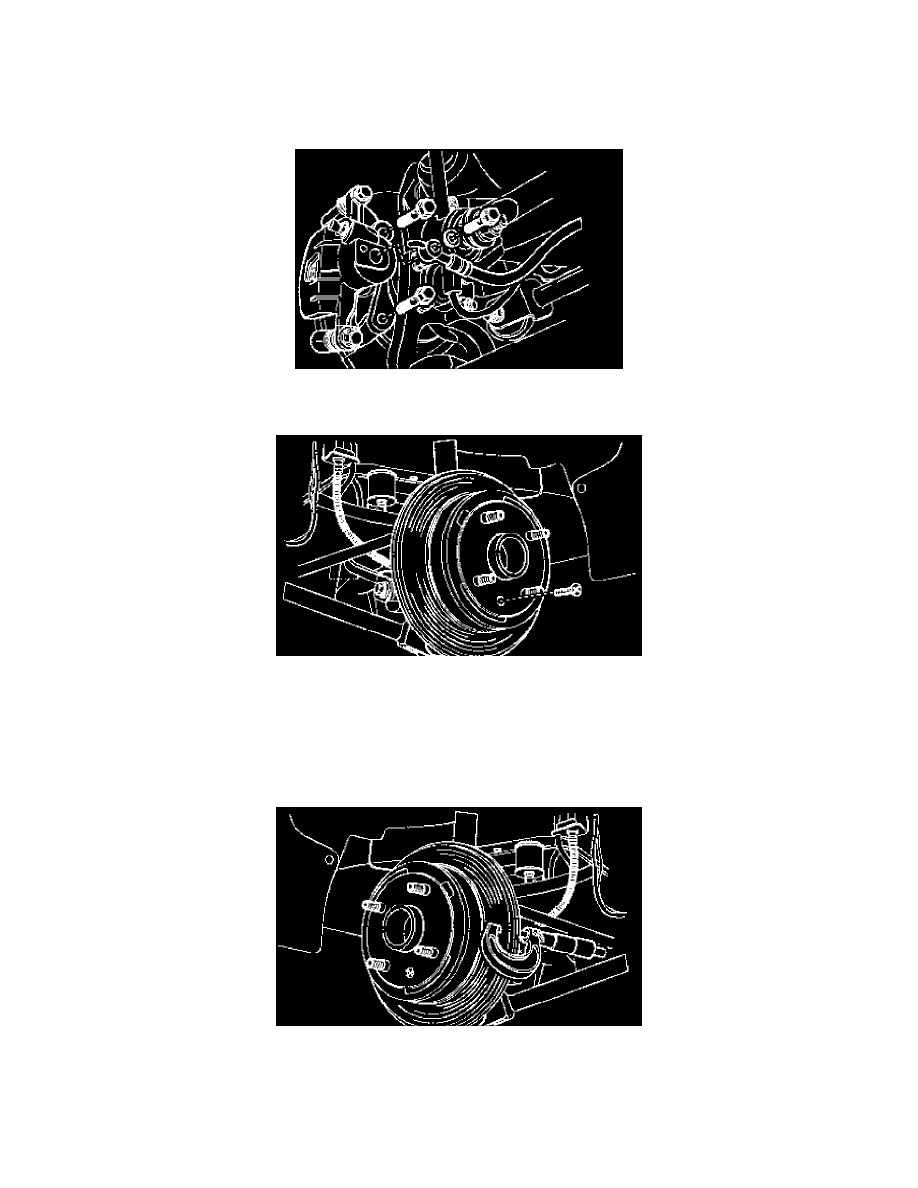Verona L6-2.5L (2005)

Brake Rotor/Disc: Service and Repair
Rear
Rotor Removal
1. Remove the caliper.
2. Remove the brake shoes.
3. Remove the caliper mounting bracket.
4. Remove the rotor detent screw.
5. Remove the rotor.
Rotor Inspection
Brake rotors are manufactured with close tolerances for thickness variation, flatness, and lateral runout, but pits and grooves are created in rotors
during usage. Lack of uniformity of the braking surfaces of the rotor can cause inadequate braking and a pulsating pedal during braking. The surface
finish of the rotor is also important because an unsuitable surface finish can cause pulling and rapid wear of the brake shoe lining. If a rotor does not
meet the specification, it should be refinished to specification or replaced. Refinishing of the rotor should only be done with precision equipment.
Thickness variation can be checked by measuring the thickness of the rotor at four or more points around the circumference of the rotor. All
measurements must be made at the same distance from the edge of the rotor. A rotor that varies by more than 1.0 mm (0.04 inch) can cause pedal
pulsation and/or front end vibration during braking. Thickness can be measured with a commercially available micrometer and should be 10 mm (0.39
inch) or over.
Light scoring of the rotor surfaces is acceptable if it does not exceed 0.40 mm (0.016 inch) in depth. Scoring measurements can be made with a
commercially available brake micrometer. Lateral runout cannot exceed 0.8 mm (0.03 inch). If lateral runout exceeds the specification, make sure
